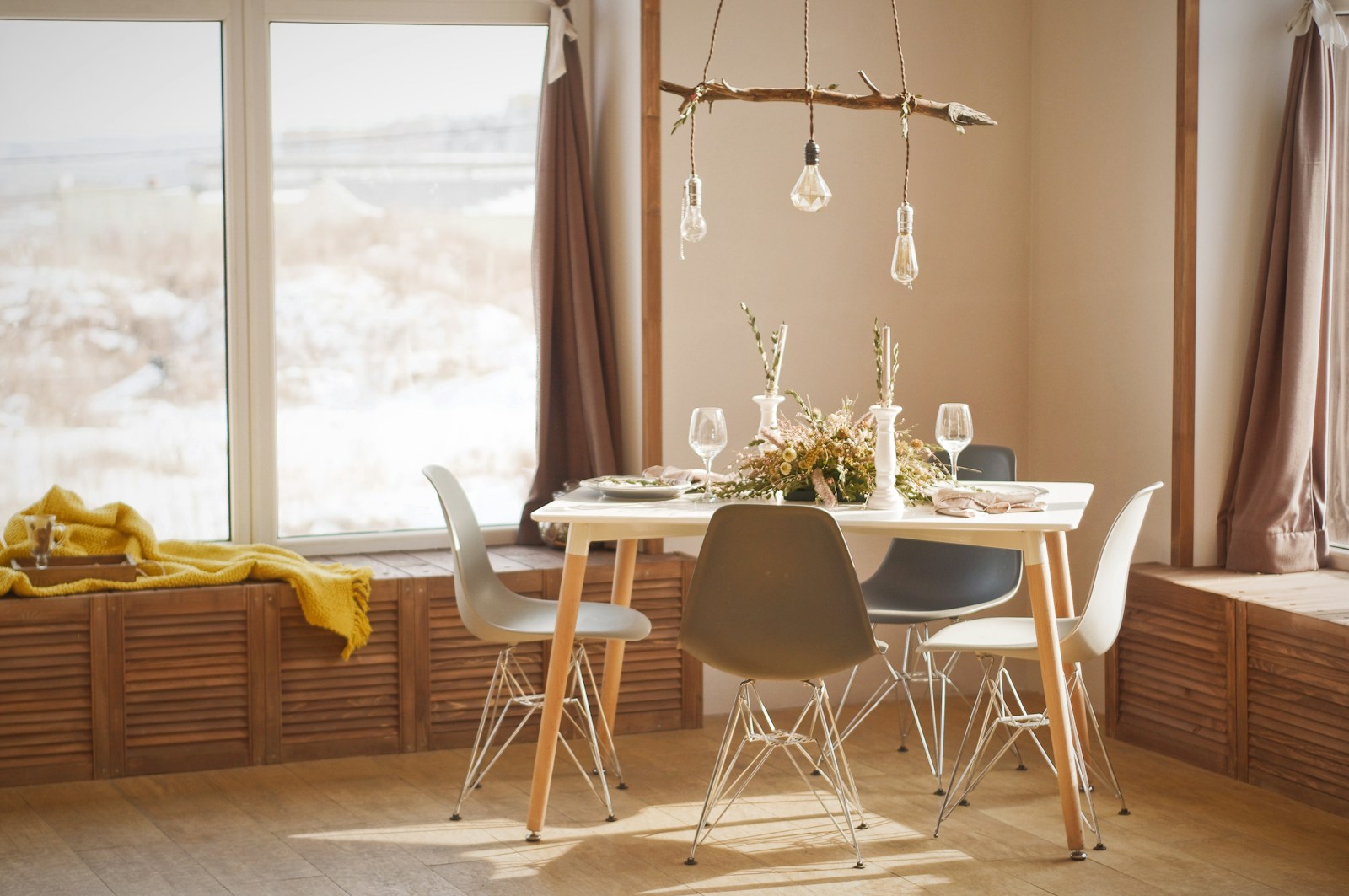
chambre

room
The French word for 'room' is 'chambre'. It is often used in the same context as in English. It refers to a part of the structure in a building which is enclosed and usually has a door, such as a bedroom (chambre à coucher), living room (salle de séjour) or dining room (salle à manger). Note that 'chambre' is feminine, so it would be 'la chambre' in definite form.
Example sentences using: chambre
Je dois nettoyer ma chambre.

I have to clean my room.
This sentence implies that the speaker has the responsibility to clean their room, 'ma chambre' is translated as 'my room'.
Elle a peint sa chambre en bleu.

She painted her room blue.
This sentence is used when someone paints their room blue. In this case, 'sa chambre' refers to 'her room'. The phrase 'en bleu' means 'in blue' or 'blue'.
La chambre est très spacieuse.

The room is very spacious.
Here, 'La chambre' means 'the room', 'est' means 'is', and 'très spacieuse' means 'very spacious'. The sentence describes the size of the room.
Je cherche une chambre à louer.

I'm looking for a room to rent.
This phrase is typically used when someone is looking for a room to rent. 'Chambre à louer' translates to 'room to rent'.
Il a sa propre chambre.

He has his own room.
This phrase means that 'he' has a room to himself. 'Sa propre chambre' means 'his own room'.
La chambre était silencieuse.

The room was quiet.
This sentence describes the quietness of a room. 'Était silencieuse' suggests the room was quiet in the past tense.
La fenêtre de la chambre donne sur la cour.

The room's window overlooks the courtyard.
In this sentence, 'la fenêtre de la chambre' refers to the window of the room and 'donne sur la cour' means overlooks the courtyard.
J'aime la décoration de votre chambre.

I like the decoration of your room.
In this instance, the speaker is complimenting the decoration in the listener's room. 'Votre chambre' is translated as 'your room'.
La chambre a une belle vue sur la mer.

The room has a beautiful view of the sea.
This sentence describes a room with a sea view. 'Une belle vue sur la mer' can be translated as 'a beautiful view of the sea'.
Il a rangé sa chambre.

He tidied his room.
Here, the phrase 'Il a rangé sa chambre' indicates that he has tidied up his room. 'Rangé' is the past participle of the verb 'ranger' which means 'to tidy'.